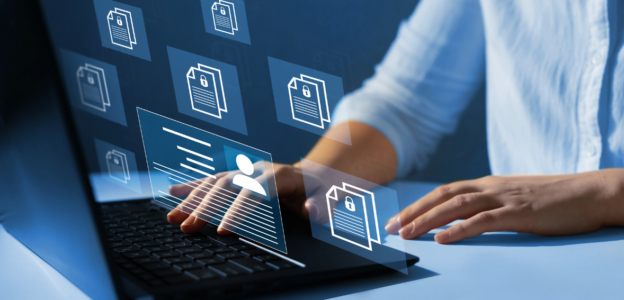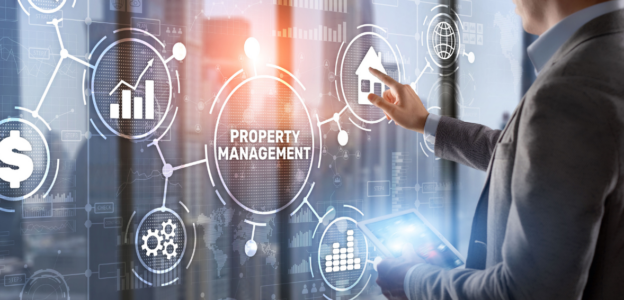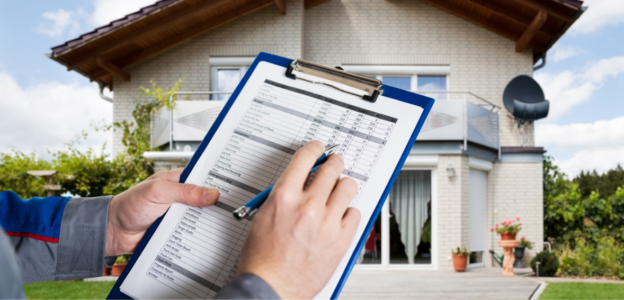Managing properties efficiently is crucial for landlords and property managers worldwide. Competition and the requirement for efficiency have led to adopting property management software in Kenya.
From tenant and lease tracking to financial management and maintenance oversight, these tools streamline operations and enhance communication between landlords, tenants, and service providers. This article explores the features of such software, analyzes specific systems like CentraHub REMS and Bomahut PMS, and evaluates user feedback to provide a comprehensive overview of Kenya’s current property management software.
Key Features of Property Management Software in Kenya
Property management software Kenya integrates numerous functionalities that are essential for efficient operation. Here are the pivotal features:
Tenant and lease tracking: Software tools offer robust databases that allow property managers to keep detailed records of tenants and lease agreements. This is vital for maintaining lease timelines, renewals, and tenant histories.
Rent collection and accounting: These systems automate rent collection, making the process less cumbersome and more accurate. They often support various payment methods, including mobile payments like M-Pesa, and are integrated with accounting modules to handle financial reporting.
Maintenance management: Proactive maintenance management features enable property managers to keep track of repair needs and schedule maintenance tasks efficiently, ensuring that properties remain in optimal condition.
Tenant communication: Effective communication channels within the software allow for seamless interactions with tenants, which can include notifications about due payments, maintenance updates, and general announcements.
Reporting and analytics: Advanced analytics and reporting capabilities help property managers gain insights into the financial performance and operational aspects of their properties.
Document management: These platforms typically provide options to store and manage important documents such as contracts, tenant documentation, and compliance certificates in a centralized, secure environment.
Online portals: Tenant and owner portals provide direct access to important information, enhancing transparency and improving service delivery.
Integration with other systems: The best property management software solutions offer integration capabilities with other systems such as CRM software, financial systems, and other operational tools, creating a cohesive management experience.
CentraHub REMS (Real Estate Management System)

CentraHub REMS is a comprehensive real estate management solution that integrates multiple functionalities required for efficient property management. This cloud-based system is designed to streamline operations, enhance tenant relations, and optimize financial management for real estate businesses of all sizes.
Key Features of CentraHub REMS
CentraHub REMS offers a wide array of features that cater to all aspects of real estate management, making it a robust tool for property managers:
Comprehensive property management: The system provides an all-encompassing view of properties, enabling managers to track, analyze, and manage real estate assets efficiently.
Tenant management system: CentraHub REMS includes tools to manage tenant details, communications, and transactions, which helps in maintaining positive tenant relationships and minimizing turnover.
Lease management software: It allows for meticulous tracking and management of leases, from initiation to renewal or termination, ensuring compliance and timely notifications.
Property maintenance software: This feature ensures that all maintenance requests are logged, assigned, and resolved promptly, keeping the property in optimal condition and tenants satisfied.
Online property management: The cloud-based nature of CentraHub REMS allows property managers to access the system anytime and from anywhere, enhancing flexibility and immediate response capabilities.
Property accounting software: Integrated accounting tools facilitate accurate financial tracking, budget management, and real-time reporting, which are essential for financial planning and analysis.
Brokerage management software: It also caters to real estate brokers by managing sales transactions, commissions, and client interactions, which enhances the efficiency of sales operations.
Property CRM: The built-in CRM capabilities improve customer relations through effective communication, marketing, and lead management strategies.
Cloud-based property management software: Being cloud-based, it reduces IT overhead, enhances data security, and provides scalability options to accommodate business growth.
Reviews of CentraHub REMS
Positive Feedback
User-friendly interface: Users widely appreciate the intuitive design of CentraHub REMS, which simplifies complex property management tasks, making the system accessible to users of varying technical skills.
Comprehensive features: The extensive range of features, from lease management to financial reporting, is highly praised. It provides users with a one-stop solution for all property management needs.
Online payment integration: The integration with online payment platforms is noted for its effectiveness in simplifying the rent collection process, enhancing both convenience and financial efficiency.
Negative Feedback
Customization Limitations: While the system offers a broad suite of features, some users have expressed concerns over limited customization options, which may not fully meet specific business requirements.
Pricing Concerns: Some users consider CentraHub REMS’s pricing structure somewhat high, potentially making it out of reach for smaller property management firms or startups.
Bomahut Property Management System
Bomahut PMS leverages advanced technology to simplify rental management, making it an indispensable tool for property managers looking to optimize their operations. As one of the leading property management software Kenya, Bomahut PMS offers robust solutions that enable property managers to handle everything from tenant billing to rent collection and maintenance management with unprecedented ease.
This software is designed to put property management on autopilot, allowing managers of anywhere from 50 to over 200 units to maximize their rental profits efficiently.
Key Features of Bomahut Property Management System
Bomahut PMS is packed with a range of features designed to streamline the property management processes.
Rent/utility fee collection: Integrates with popular payment systems like Mpesa and major banks (Equity, KCB, Cooperative), automatically recording payments and notifying managers about which tenant has paid, thus eliminating the common issues of disputed payments or lost receipts.
Invoice/receipt management: The system supports a paperless operation with SMS invoices and receipts, allowing property managers to send billing information directly to tenants via SMS, enhancing convenience and reducing paper waste.
Updated tenant records: Maintains digitized and accurate tenant records and account balances that are easily accessible and manageable. This feature aids in quickly resolving any disputes related to account balances and keeps financial records organized.
Sms services: Enables property managers to communicate with tenants through SMS regarding balance updates, announcements, and more, directly from the office or home, saving valuable time that would otherwise be spent on physical visits.
Automated property management tasks: Automates routine tasks like payment reminders, payment recording, and receipt dispatching, which significantly reduces the workload on property managers and allows them to manage more properties more effectively.
Reports and statements: Allows for the instant generation of detailed tenant, property, and landlord statements at the click of a button, facilitating better financial management and transparency.
Payment’s integration: Similar to rent collection, this feature supports integration with various payment methods, ensuring that all financial transactions are captured accurately in the system.
Reviews of Bomahut PMS
Users have consistently praised Bomahut PMS for its transformative impact on property management, citing several key benefits:
Automation of financial management: The platform effectively alleviates the mental strain associated with managing multiple properties. Users appreciate the system’s ability to automate complex financial tasks, reducing the need for manual intervention and ensuring that support is always available when needed.
Simplified invoicing: The ability to generate bulk invoices for rent and utilities is seen as a major advantage. This feature not only saves time but also eliminates the errors commonly associated with manual invoicing, making the process far more efficient.
Effective payment reminders: The system’s automated payment reminders have proven to be highly effective in improving rent collection rates. Users have found it easier to keep track of tenant payments, quickly identify overdue accounts, and take necessary actions to maintain financial stability.
Streamlined tenant management: Bomahut PMS simplifies tenant management by automating routine tasks such as rent and utility bill invoicing. The ability to send bulk reminders further enhances efficiency, allowing property managers to focus on other critical aspects of their operations.
Kayapro Property Management Software

Kayapro PMS stands out in the competitive landscape of property management systems by offering a highly intuitive and comprehensive platform. Designed to cater to the evolving needs of modern property managers, Kayapro PMS facilitates seamless management of rental properties through advanced technological solutions.
This system is renowned for its robust functionality and user-friendly interface, making it a preferred choice for property managers who need an efficient, scalable, and integrated property management solution.
Key Features of Kayapro360's Rental Property Management Software
Kayapro360’s software brings a plethora of features designed to streamline the complex tasks of property management:
Comprehensive tenant management: Centralizes tenant data, including contact details, lease terms, and payment records, ensuring easy access and management. Built-in tools for communicating directly with tenants enhance engagement and ensure that all parties are well-informed.
Automated rent collection: Integrates with various payment platforms like M-Pesa, allowing for automatic rent collection and minimizing payment delays. Automated reminders notify tenants of upcoming dues, reducing the incidence of late payments.
Efficient rent reminders: Sends timely SMS and email reminders to ensure tenants are always aware of payment deadlines. Managers can tailor reminder settings according to specific needs and tenant agreements, ensuring flexibility and effectiveness.
Detailed financial reporting: Generates comprehensive reports, including income statements and balance sheets, aiding in financial assessment and strategy. The software also offers tools for tracking financial performance, helping managers make informed operational decisions.
Streamlined maintenance tracking: Efficiently tracks maintenance requests to ensure timely responses and resolution, maintaining property integrity. Quick and effective issue resolution boosts tenant satisfaction and retention.
Cloud-based accessibility: The cloud-based nature of the software ensures that managers can operate their portfolio from any location, using any device. This feature keeps managers informed and in control, regardless of their physical location.
User-friendly interface: The platform is designed for ease of use, requiring minimal training to navigate effectively. It focuses on essential functionalities that enhance property management efficiency.
24/7 customer support: Dedicated assistance provides continuous support to address any issues promptly. This ensures operational continuity by resolving problems quickly and efficiently, minimizing downtime and keeping the property management process running smoothly.
User Reviews of Kayapro PMS
Positive Feedback
Ease of use: Users consistently commend the software for its intuitive design, which simplifies complex property management tasks.
Efficient tenant management: The robust tenant management tools are praised for helping keep tenant records organized and improving communication.
Improved rent collection: The integration with payment systems has notably reduced the administrative burden and enhanced the efficiency of rent collection processes.
Areas for Improvement
Customer Support: Some users have noted delays in customer support response times, suggesting a need for faster service to enhance user satisfaction.
Feature Set: Feedback from certain users indicates a desire for more advanced features and customization options to cater to specific management needs.
Real Estate Management Software
Real estate management software has transformed how property management firms handle their operations, offering powerful tools that streamline complex processes and enhance efficiency.
These software solutions provide comprehensive features covering every aspect of managing properties, from financial transactions and tenant management to document storage and compliance, making them indispensable in today’s fast-paced real estate market.
Key Features of Real Estate Management Software
Real estate management software integrates various functionalities to support property managers in maintaining efficiency and organization:
Accounting and budgeting: The software includes a fully integrated financial module that supports efficient bookkeeping workflows, bank reconciliations, and detailed financial reporting, such as profit and loss statements and balance sheets. This ensures that property managers have a clear overview of their financial health at all times.
Rent payment processing: It simplifies the collection of rent by offering seamless payment processing methods, including online payments via platforms like M-Pesa. This feature ensures regular and efficient rent collection, significantly reducing the manual effort required in managing these transactions.
Tenant management: The software allows property managers to easily create and maintain a comprehensive tenant database, which includes names, contact details, service and payment histories, rent schedules, and plan renewals. This centralization of tenant information facilitates better management and communication.
Document management: Essential documents such as lease agreements, official notices, and insurance papers are systematically managed within the software. This not only ensures easy access and security but also aids in compliance and record-keeping.
Landlord expenses and payments management: All expenses and payments related to landlords are meticulously tracked and managed, providing clear and detailed financial oversight.
Landlord statement: Detailed statements that outline what is payable, what has been deducted, and what has been paid to the landlord’s account are readily generated, offering transparency and clarity for both managers and landlords.
Water/electricity billing management: For properties with metered utilities, the software can manage and bill these utilities efficiently, reducing the complexities involved in utility management.
Notifications and alerts management: Ensures all stakeholders are kept informed of important information and updates.
Analytics: Provides deep insights into various aspects of property management, aiding in data-driven decision-making.
Reporting: Generates comprehensive reports on various operational metrics.
Integration with third-party software: Enhances functionality by allowing integration with other business applications.
Sms and email: Facilitates direct communication with tenants and landlords through built-in SMS and email modules.
Reviews of Real Estate Management Software Users
Efficiency in automation: Many users praise the software for automating repetitive tasks, such as rent collection, lease renewals, and maintenance management, significantly reducing the administrative burden for property managers.
Comprehensive features: Users find the all-in-one nature beneficial, offering essential tools like accounting, tenant portals, and document management, which enhance operational efficiency. However, some premium features may come at an extra cost, which limits accessibility.
User experience: While some systems are intuitive with smooth onboarding processes, others face criticism for being difficult to navigate, particularly in lease management tools.
Payment processing issues: A common complaint involves delays in payment processing and difficulty in managing financial tasks like refunds and escrow.
Cost vs. Functionality: There are affordable options, but advanced functionalities often require higher-priced plans, creating challenges for small firms.
Robisearch Property Management Software

Robisearch PMS has carved a niche for itself as a premier property management system (PMS) recognized for its affordability in Dar es Salaam, unparalleled speed in Juja and Machakos, and convenience in Ruiru. Touted as the best PMS in multiple cities across Kenya, including Nairobi, Kikuyu, Malindi, and Kitui, Robisearch has expanded its reach to provide top-notch services throughout East Africa.
This includes being the most cost-effective rental software in Kampala and the leading accommodation software in Arusha, demonstrating its widespread acclaim and adoption.
Key Features of Robisearch PMS
Robisearch PMS integrates a comprehensive suite of features designed to streamline property management processes:
Receipting of tenant payments: The system ensures that all tenant payments are accurately recorded and receipts are issued instantly, providing clear financial accountability.
Invoice generation: Automates the creation of invoices for rent and utilities, facilitating timely and professional billing.
Accounting: Offers robust accounting features that help manage and report on the financial health of properties, including tracking income and expenditures.
Maintaining key property details: Keeps detailed records of property specifications and status, ensuring all relevant data is easily accessible for management decisions.
Digital paper trail for compliance: Ensures all transactions and interactions are logged, creating a compliant digital paper trail that meets regulatory standards.
Records of property occupants: Maintains up-to-date records of all current and past tenants, enhancing security and operational transparency.
Management of room booking and renting: Streamlines the process of booking and renting rooms, ideal for properties with short-term leasing options or hotel operations.
Managing tenancy agreements and leases: Automates and manages the lifecycle of tenancy agreements and leases from initiation through to renewal or termination.
Reviews of Robisearch PMS
Robisearch PMS has consistently been hailed as a leading digital customer feedback platform across various regions, including Nairobi, Kisumu, Mombasa, and broader East Africa.
Key highlights from user reviews include:
Comprehensive digital solutions: Users across Kenya and East Africa praise Robisearch for providing a comprehensive digital platform that streamlines property management and customer interactions.
Affordability and accessibility: Particularly noted in Dar es Salaam and Nairobi, Robisearch offers affordable solutions that do not compromise on functionality, making advanced property management accessible to a broader audience.
Regional best: Whether it’s the best accommodation software in Arusha or the most efficient rental software in Nyeri, Robisearch is recognized for its top-tier performance and customer satisfaction in multiple cities and regions.
Innovative customer interaction: The platform’s integration of digital suggestion boxes and online customer platforms enhances interactive communication and feedback collection, significantly improving service delivery and customer satisfaction.
Conclusion
The adoption of property management software in Kenya’s real estate market has revolutionized property management. These tools offer comprehensive features that simplify tenant and lease tracking, rent collection, maintenance management, and financial reporting, among other things. Systems like CentraHub REMS and Bomahut PMS have emerged as powerful solutions, catering to diverse property management needs with their robust functionalities and user-friendly interfaces.
While some challenges, such as customization limitations and pricing concerns, persist, the overall benefits of these systems in enhancing efficiency, communication, and financial management are undeniable. As the market continues to evolve, these software solutions will likely play an even more significant role in optimizing property management practices across Kenya.
Frequently Asked Questions
Yes, property management software typically includes features for automating rent collection and integrating with accounting modules to manage financial reporting, making the process more efficient and accurate.
These tools include built-in communication channels that allow for seamless interactions with tenants, including notifications about due payments, maintenance updates, and general announcements.
Yes, although some systems may have pricing structures that are more suitable for larger firms, there are also affordable options that cater to the needs of smaller property management firms, offering essential features without overwhelming costs.




































